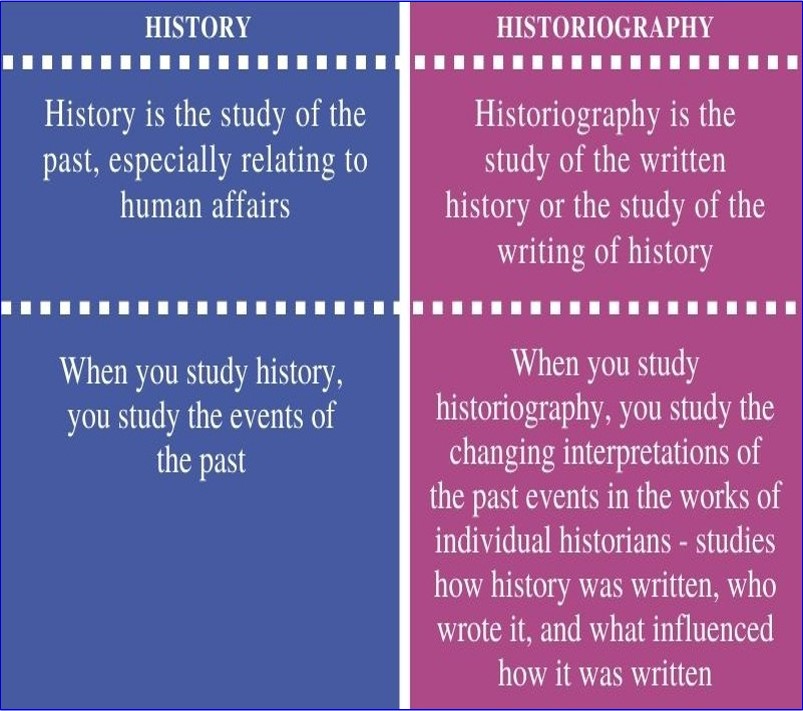
The few questions, we must ask:
What is History?
Why do we study History?
What are different types of History?
What are the possible scientific views of History?
Which history to be explored?
History is a study of the events of the PAST, how and why they happened, as well as what happened as a result.
History is generally misunderstood as a study of what people have done TO people, what people have done FOR people, what had happened to people because of some people.
History is not just the study of political issues (who ruled and when and at what stakes) or not the economic, religious, cultural issues. History is lot more to do with the psychological understanding of people since their evolution.
History is distinct from myths and narratives about the past. History is exclusively concerned with what can be demonstrated through the reasoned use of evidence. History attempts to describe and explain the PAST. Historians are generally concerned with the causes, consequences and significance of the events.
DIFFERENT TYPES OF HISTORY
Political history: Studies the story of government, political leaders, elections, policies and the interaction between the different branches of government.
Diplomatic history: Studies the relations between countries, ambassadors, and ideas of diplomacy.
Social history: Studies the ways and customs of people, of families and children, education, as well as demography, and social institutions such as churches, temples, etc.
Cultural history: Studies languages and their uses, the arts including literature, sports and other entertainments and the way they participate in constructing cultural identities.
Economic history: Studies how a whole system of production and consumption (or of any of its parts) works, of businesses, industry, banks, and working classes at all levels of the system.
Intellectual history: Studies ideology and epistemology and works to analyse how ideas affect human lives and how material world influences human ideas.
HISTORIOGRAPHY
There is a field of History called Historiography, which is the history of history.
Instead of subjecting actual events, the object of historiography is the history of the history of the event.
Questions of historiography include the following:
Who writes history, what was their agenda, and towards what goal?
How reliable can a historian ever aspire to be, interpreting past events from the point of view of the historian's present?
What about the sources a historian choose to include in their work or purposefully exclude?
PRIMARY SOURCES: Some thing written or created by a person who witnessed a historical event. (letters, diaries, photos, videos, human-made tools)
SECONDARY SOURCES: Written after a history event by people who did not witness the event. (books, news, reports, paintings)
ORAL HISTORY: An unwritten account of an event. (stories)
According to our text books, history is studied as
Modern history, Medieval history, Ancient history which are some hundreds/ thousands of history based on literatures in different forms. All these are associated to mostly political history. The so-called religions, economics, cultures, traditions….. all are associated to these political history.
But, we must ask a fundamental question, “Is it the only history?”. Can’t we explore more, differently or scientifically?
People generally look for the limited time period from the past that favors their beliefs.
The most important histories those need to be explored with utmost importance are…
Cosmological History
Astronomical History
Geological History
Biological History
Why we only study the worst parts of history such as war, fight, struggle, killing, rule, invasion, corruption, dominance, etc.
We should explore more about the History of GOOD PEOPLE. There is an area of study known as "HAGIOLOGY", which deals with the study of saints.
They help us to explore the reality. The understanding of these history broaden our horizon of thought. They develop our scientific temperament.
